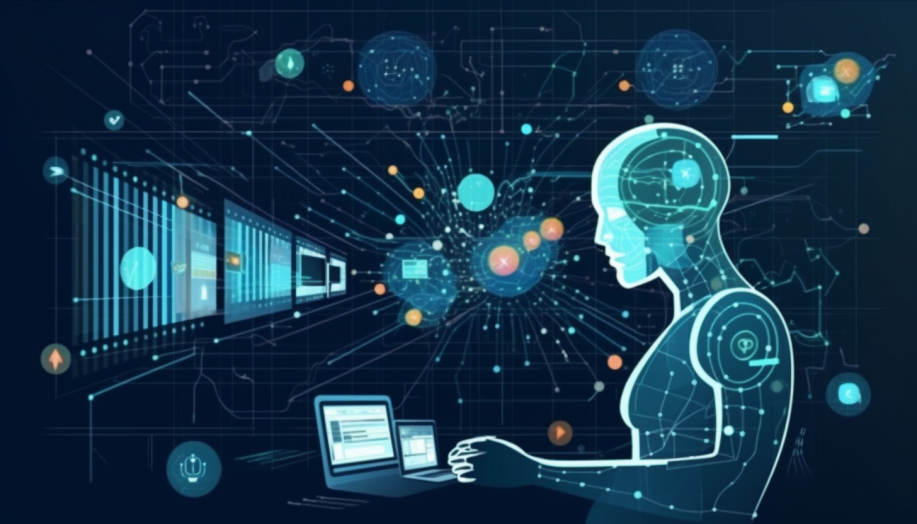AI and Analytics: Shaping the Future of Data-Driven Decision Making
Introduction
In today's data-driven world, the ability to make informed decisions quickly and accurately is paramount. Artificial Intelligence (AI) and Analytics are revolutionizing how organizations leverage data to gain competitive advantages. By combining the power of AI with advanced analytics techniques, businesses can extract valuable insights from vast datasets, automate processes, and make data-driven decisions that drive growth and innovation.

Understanding AI and Analytics
Artificial Intelligence (AI): AI refers to the simulation of human intelligence in machines, enabling them to perform tasks that typically require human intelligence, such as learning, reasoning, problem-solving, and perception. AI technologies include machine learning, natural language processing, and computer vision.
Analytics: Analytics involves the examination of data to uncover patterns, trends, and insights that can be used to make informed decisions. It encompasses various techniques, including descriptive analytics, predictive analytics, and prescriptive analytics.
The Intersection of AI and Analytics
The convergence of AI and analytics is driving significant advancements in data-driven decision making. Here are some key areas where AI is making a transformative impact:
Enhanced Data Processing and Analysis: AI algorithms can process vast amounts of data at unprecedented speeds, identifying patterns and anomalies that would be difficult for humans to detect. This enables organisations to gain deeper insights into their data and make more accurate predictions.
Predictive Analytics: AI-powered predictive models can forecast future trends and outcomes with greater accuracy. By analysing historical data and identifying patterns, these models can help businesses anticipate customer behavior, market trends, and potential risks.
Personalised Recommendations: AI can personalise recommendations and experiences for customers based on their individual preferences and behaviours. This leads to increased customer satisfaction and loyalty.
Process Automation: AI can automate repetitive and time-consuming tasks, freeing up human resources to focus on more strategic and creative work. This improves efficiency and reduces costs.
Fraud Detection: AI algorithms can detect fraudulent activities by identifying unusual patterns and behaviors in data. This helps organizations protect their financial assets and mitigate risks.
Natural Language Processing (NLP): NLP enables machines to understand and interpret human language, allowing for more intuitive interactions with data. This makes AI accessible to a wider range of users.
Real-World Applications
AI and analytics are being deployed across various industries, revolutionizing how businesses operate. Here are some examples:
Healthcare: AI-powered diagnostic tools can analyze medical images and detect diseases more accurately than human experts. AI is also being used to develop personalized treatment plans and predict patient outcomes.
Financial Services: AI is used for fraud detection, credit risk assessment, algorithmic trading, and customer service automation.
Retail: AI-powered recommendation engines provide personalized product suggestions to customers, increasing sales and customer satisfaction.
Manufacturing: AI is used for predictive maintenance, quality control, and supply chain optimization.
Marketing: AI enables targeted advertising, customer segmentation, and sentiment analysis.
Challenges and Considerations
While the potential benefits of AI and analytics are immense, there are also challenges to be addressed:
Data Quality and Privacy: Ensuring the quality and accuracy of data is crucial for AI models to produce reliable results. Privacy concerns must also be carefully considered when handling sensitive data.
Explainability: AI models can be complex and difficult to understand. This can make it challenging to explain their decisions and build trust.
Ethical Implications: The use of AI raises ethical questions related to bias, fairness, and accountability.
The Future of AI and Analytics
AI and analytics will continue to evolve, shaping the future of data-driven decision-making. As these technologies become more advanced and accessible, we can expect to see increasingly innovative applications across various industries. For individuals interested in pursuing careers in this field, collaborating with a data analytics course provider in Delhi, Noida, Mumbai and other Indian cities offers valuable training and insights. By harnessing the power of AI and analytics, organisations can gain a competitive edge, enhance efficiency, and drive innovation.